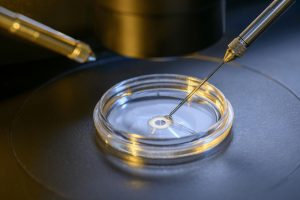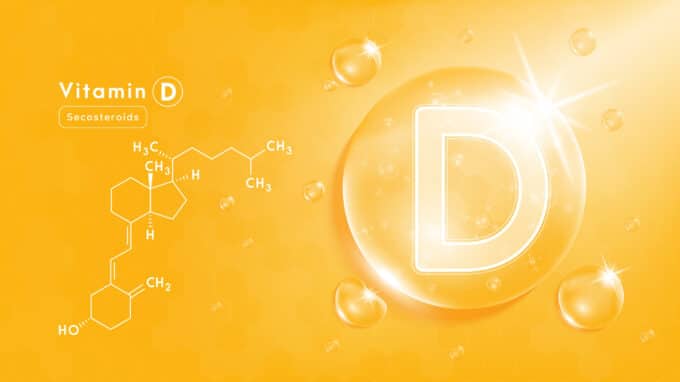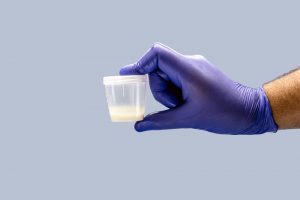Vitamin D, a hormone produced by the body through sun exposure or obtained from foods such as oily fish and egg yolks, helps the body control calcium and phosphate levels. It has long been known for its role in bone health. Previous studies have linked vitamin D levels to a range of health problems, including cardiovascular disease and cancer.
How vitamin D Affects Fertility
Up to 80% of the population in Europe are affected by low vitamin D levels. Because it’s particularly common in people who lead unhealthy, sedentary lifestyles, low vitamin D levels have been linked to obesity. In addition, fertility in both men and women has largely deteriorated in recent years, and more and more research found that vitamin D deficiency is a possible cause.
Dr. Elisabeth Lerchbaum from the Medical University of Graz has conducted numerous studies on the effects of vitamin D supplementation on various aspects of male and female fertility. Research from her group and others suggests that vitamin D affects many aspects of fertility in both sexes, including sperm production and maturation in men, egg maturation in women, and sex hormone production in both sexes. Additional studies have shown beneficial effects of vitamin D supplementation in regulating the menstrual cycle in women suffering from PCOS. There is also evidence that vitamin D supplementation can improve sperm quality, fertility outcomes, and testosterone levels.
Vitamin D and IVF
Recent studies suggest that vitamin D supplementation could be beneficial for couples undergoing IVF. According to a study published in the Endocrine Society’s Journal of Clinical Endocrinology & Metabolism (JCEM), women with vitamin D deficiency are half as likely to become pregnant through in vitro fertilization (IVF) as women who have adequate vitamin D levels.
To determine the impact of vitamin D on fertility, Italian researchers studied women undergoing IVF. They found that women with adequate
The prospective cross-sectional study analyzed vitamin D levels in women referred for IVF in 2012 to the Infertility Unit of the Fondazione Ca’ Granda at the Ospedale Maggiore Policlinico. Researchers looked at the success of IVF procedures in 154 women with vitamin D deficiency and 181 women who had adequate levels of vitamin D in their blood. Women with a vitamin D level of at least 20 ng/ml in the blood were considered to be adequately supplied with the hormone. Levels of 30 ng/ml are recommended for general health. Women with adequate vitamin D levels were almost twice as likely to get pregnant as women with vitamin D deficiency. Since women with adequate hormone levels are more likely to produce the highest quality embryos, the researchers hypothesized that vitamin D is involved in the production of high-quality eggs in the ovaries and in the successful implantation of embryos in the uterus.
Because vitamin D supplementation is an inexpensive and simple intervention with few relevant side effects, additional studies in this area have the potential to significantly impact the way infertility is managed.
Lower Live Births are Associated with Inadequate Vitamin D Levels
A review and meta-analysis published in Human Reproduction, one of the world’s leading reproductive medicine journals, demonstrates a strong association between low vitamin D levels in women and lower live birth rates after assisted reproduction compared to women with normal levels of vitamin D in the body. The researchers analyzed data from 11 published studies involving 2,700 women undergoing ART (in vitro fertilization (IVF), intracytoplasmic sperm injection (ICSI) and/or frozen embryo transfer) and having their vitamin D status checked through blood tests.
They found that women who had the right amount of vitamin D were a third more likely to have live births than women who had low levels. Vitamin D concentrations greater than 75 nanomoles per liter of blood (nmol/L) were considered sufficient, concentrations less than 75 nmol/L insufficient, and less than 50 nmol/L deficient.
A similar result was observed when the researchers looked at the results of pregnancy tests and clinical pregnancies (where a fetal heartbeat could be detected). Compared to women with deficient or insufficient vitamin D levels, women with adequate vitamin D were 34% more likely to have a positive pregnancy test and 46% more likely to achieve clinical pregnancy. No associations were found between miscarriages and vitamin D concentrations. The researchers explain that possible mechanisms for the role vitamin D plays in pregnancy could be that it somehow influences the success of the embryo’s implantation in the uterus.
How Vitamin D Affects Sperm Quality
A study conducted on 300 men found a positive correlation between the percentage of motile sperm and serum vitamin D levels. The study, published in the journal Human Reproduction, also showed that stimulating human sperm in the laboratory with activated vitamin D can increase their forward movement. This study is one in a series of studies suggesting that vitamin D is necessary for male reproduction.
Researchers examined the influence of vitamin D deficiency on the process of spermatogenesis and showed lower values of testicular glutamyl transpeptidase activity as an index of Sertoli cell function in vitamin D-deficient rats. Histological analysis of the testicles in hypovitaminosis showed a significant decrease in Leyding cells with degenerative changes in the germinal epithelium. This confirms the effect of vitamin D on testicular function and indirectly on male fertility. A subsequent intervention study with intramuscular administration of three different doses of vitamin D showed that injecting lower doses of vitamin D at day 120 improved testicular function compared to high doses.






